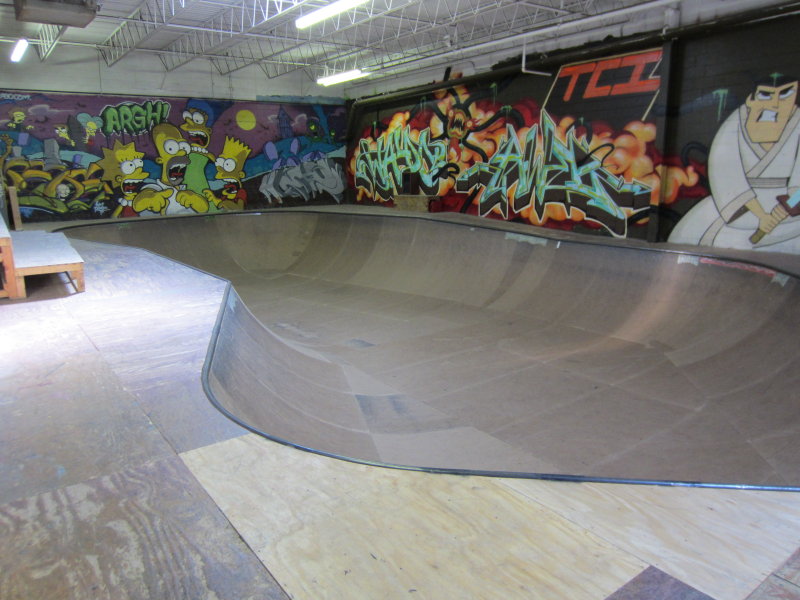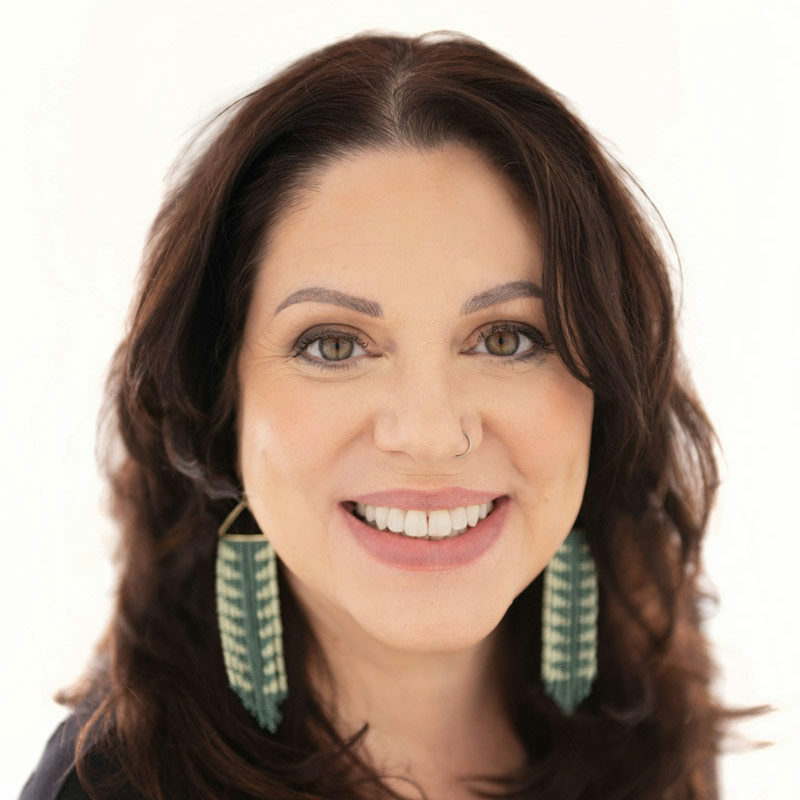Bill Kaschner started skateboarding in Shorewood when he was a kid in the '80s. At first, he just sat on his brother's board and rolled down hills, but by the time he was in fifth or sixth grade, he got his own board and started taking the sport seriously, often honing his skills on playgrounds and in parking lots at Lake Bluff, Atwater, Shorewood High School and other open spaces in his suburban neighborhood.
Since skateboarding is illegal on most city and private property – and Kaschner got multiple tickets as a kid for boarding – one of his goals was to provide a safe, legal environment for kids to practice their sport.
"Bill didn't have that option as a kid, hence the tickets for skating," says Kate Giuffre, who is Kaschner's wife and business partner. "This was one of the driving forces for opening the park. It seems silly to be fined for participating in a sport."
In February 2006, the couple opened Cream City Skatepark, 5560 N. Park Dr., in Butler.
The warehouse space, which was originally a building supply company, easily transitioned into an indoor skate park, and Kaschner and his friends built a street course inside the building, along with a bowl, pipes and ramps.
"Cream City was built by skateboarders for skateboarders," says Kaschner.
Prior to opening the park, Kaschner worked for eight years at various Phase 2 locations and taught skateboarding at Lake Owen Camp in Cable, in Bayfield County, for 10 years.
Today, Kaschner runs the day-to-day operations at the park and Giuffre handles the competitive program at Midwest Twisters Gymnastics in the Franklin / Oak Creek areas.
"We both have a passion for our sports and for working with kids," says Giuffre, who was an avid skateboarder in high school and college.
Cream City offers lessons, memberships, day passes and birthday parties. A membership costs $75 a year and includes a T-shirt, 10 percent off the pro shop and discounted events. Members pay a $6 entry fee and non-members are charged $11. Cream City also has demos and "meet the pros" events which feature acclaimed skaters like Andrew Reynolds, Bryan Herman and Brandon Biebel.
Cream City is 18,000 square feet and in addition to the skating areas has large TV screens playing the latest skateboard videos, old school video games, free wifi, a concessions area and a ping-pong table for skaters taking a break.
Every year, Kaschner adds something new to Cream City to keep it fun and challenging.
Many skaters use the Cream City space to learn new tricks and to hone skills before taking them out to the streets. Indoor skate parks also allow the sport to stay alive during the winter months, during which time about 20 percent of the visitors are from Chicago.
Milwaukee has an indoor skatepark called the Four Seasons, 200 N. 24th St., which is also an indoor BMX facility. There are numerous outdoor skate parks as well, including one in Estabrook Park.
Kids under 18 are welcome to take lessons or attend open skate sessions, but they must wear a helmet. Cream City occasionally hosts "lock-ins" for minors which offer all-night skating, games, prizes and pizza.
Advanced age isn't an issue for many skateboarders – Kaschner knows guys in their 40s and 50s who skate regularly. At 36, Kaschner says despite the demands of the business he tries to get on his board every day, but his style has changed as he's gotten older.
"My body doesn't handle jumping down things as well anymore," says Kaschner, who hasn't suffered any serious injuries from skating but has gotten stitches and suffered a few sprains.
Skateboard designs have definitely changed since Kaschner started skating two decades ago. Back then, according to Kaschner, the boards looked more like fish tails and now they are shaped like Popsicle sticks.
Kaschner says he sees more girls getting into the sport, even though there are still way fewer female skaters than male. To encourage girl skaters, Cream City works with the Girls Riders Organization (GRO) and offers girls half-off the open-skating price at all times.
"We're trying to get 'em in here," he says.
There are a lot of reasons why Kaschner has remained an avid skater over the years and dedicated his professional adult life to the sport. Mostly, he appreciates that skating is not a team sport, but still something you can do with friends. It's also fulfilling to watch people work so hard on a trick for a long period of time and then finally master it.
"It takes many months and months just to do a little ollie," says Kaschner. "And some kids just don't have the patience."
For beginning skaters, Kaschner says learning to ollie – a skateboarding trick where the rider leaps into the air on the board without using his or her hands – is the first step before moving on to other tricks, like kick flips and grinds.
"All the street tricks revolve around the ollie," says Kaschner.
Molly Snyder started writing and publishing her work at the age 10, when her community newspaper printed her poem, "The Unicorn.” Since then, she's expanded beyond the subject of mythical creatures and written in many different mediums but, nearest and dearest to her heart, thousands of articles for OnMilwaukee.
Molly is a regular contributor to FOX6 News and numerous radio stations as well as the co-host of "Dandelions: A Podcast For Women.” She's received five Milwaukee Press Club Awards, served as the Pfister Narrator and is the Wisconsin State Fair’s Celebrity Cream Puff Eating Champion of 2019.




